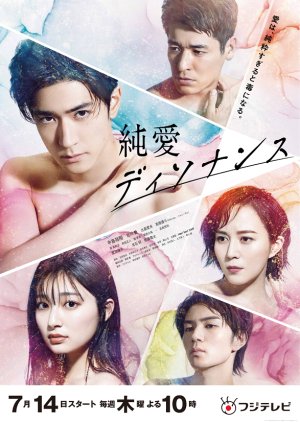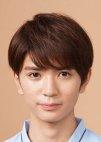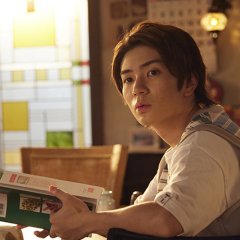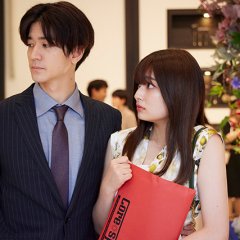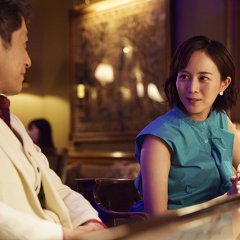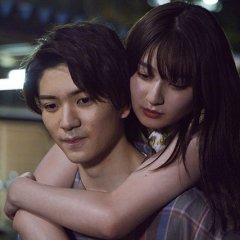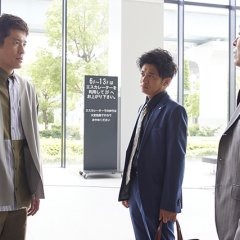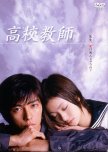Nitta Masaki begins his new job as a music teacher at a high school shaken by the disappearance of the former music teacher. On his first night, he meets his student Izumi Sae in the music classroom, and their bond grows as they become involved in the case. Though Nitta Masaki develops feelings for her, he refuses to acknowledge it, while Izumi Sae is certain of her love for him. They part ways. Five years later, they reunite, but Nitta Masaki is now married, complicating their feelings. (Source: MyDramaList) Edit Translation
- English
- magyar / magyar nyelv
- עברית / עִבְרִית
- dansk
- Native Title: 純愛ディソナンス
- Also Known As: Pure Love Dissonance , Junai Disonansu , Love Dissonance
- Director: Hijikata Masato, Kimura Mahito
- Screenwriter: Kuramitsu Yasuko, Takei Aya, Tamada Shinya, Obayashi Rieko
- Genres: Romance, Drama
Where to Watch Junai Dissonance
Free (sub)
Cast & Credits
- Nakajima YutoNitta MasakiMain Role
- Yoshikawa AiIzumi SaeMain Role
- Higa ManamiUsui ManamiSupport Role
- Takahashi YutoAsahi ShintaroSupport Role
- Sato RyutaMichika YusukeSupport Role
- Kakei MiwakoKosaka YukinoSupport Role
Reviews

This review may contain spoilers
Conditional vs. Unconditional Love
This drama should go by the title 'Pure Love Dissonance' and not just 'Love Dissonance'.The Japanese title 'Junai' translates to 'pure love', a specific type of love usually associated with Unconditional Love or Agape, also known as 'selfless love'.
Many forms of relationships and types of love exist in this drama. Relationships between lovers, friends, family, and not-quite enemies but definitely rivals. Various types of love are present in just about every form except for Erotic love. It could be a result of the innate censorship of the drama because of the rating or because it's from Japan a conservative country, but there are moments when the drama mentions Erotic love. However, it's just never mentioned about the main couple unless someone believes that that is the reason the main couple is together.
It's not. It's way deeper than that.
The main couple - in comparison to every other dynamic, pair, or relationship in the drama - represents selfless love. Unconditional love. The type of intimacy that is only present in those who have experienced 'infinite empathy' for another person.
Masaki and Sae met each other at one of their lowest moments in life and helped each other overcome their personal struggles and find comfort, support, and sanctuary with each other.
The explosive argument in the 7th episode between Manami and Masaki highlights that. She illustrates to Masaki that she would refer prefer Masaki and Sae just sleep together instead of emotionally cheating.
It was the first time I'd seen a portrayal of Emotional Infidelity. Very well done.
"What I can't stand is the heart! I can't stand the fact that you two are connected at the heart!"
Masaki and Sae have infinite empathy for each other that seems to last the test of time and circumstance. Despite almost everyone's attempt to break these two apart, even Masaki and Sae.
At times, the image of doves hounded by a circle of vultures comes to mind when I see more drama plied on to break the main couple apart. It was almost like they were the innocents and collateral damage to the world's expected forced expectations and eventually fallout for everyone.
The photo that ruined their reputation was of them consoling each other after a few days of constant emotional and mental exhaustion. Either from their toxic parents, inability to embark on achieving their dreams, or just from society pulling them away from each other for the sake of the status quo. No kisses, no sexts, no brazen behavior at school, and no explicit form of physical intimacy between them.
Just a 'shoulder-to-cry-on' mentality. Nothing more. However, the situation they're in is inappropriate. The backlash from the photo made the situation less ideal than it was in real life.
Sae is very candid, blunt, and level-headed. I adore Smart Leads because their actions have logical reasoning behind them and they usually acknowledge the consequences of their actions as well. Sae - in comparison to Masaki - is braver and more emotionally mature than her counterpart in the drama. Masaki may be the Sensei but he has much to learn from her when it comes to being true and honest to yourself, despite what life throws your way. She didn't 'fix' him though she did inspire change within him. He acknowledges that near the end of the drama too. Sae is the reason he's decided to treat himself better, be more honest, and live more honestly too. They bring out the best in each other simply the fact that they both just want to be happy living their dreams, together or not. Selfless love.
Manami represented obsessive love towards Masaki. All or majority of the parents were just Narcissists and toxic people. Treating their children as extensions of themselves and denying those children basic human rights like deciding their own path and their privacy rights.
When Sae's mother came to school to read her daughter's novel out loud, I was truly disgusted. Then, near the end of the drama, I choked up a little when her mother told her daughter to be different from her and therefore better than her. 'Go be with Masaki', she was saying in her own petty way. I laughed too but was happy that the mom was finally ready to not be selfish.
Another aspect of the drama that really hit home for me was the parent-child bonds. There's Masaki and his parents. Sae and her mom. And then, Manami and Hokuto with their father and Manami's mother play a part too. The type of love between parents and children should be Agape or Storge known as 'familiar love'. However Agape still trumps all other types of love.
Sae and Masaki's love reigns superior to everyone else's, especially at the beginning of the drama.
The other characters' relationships - between other people and within themselves - eventually and fortunately change for the better good near the end of the drama. Even the criminals in the show have a change of heart and/or redemption arc that I'm okay with. Everything that happens in this drama relates to someone's desire for love or in the name of love.
Masaki's statement to Manami's father in the last episode was profound and brutally honest. "So long as you shackle people with conditions, no one will become your family. Family comes at the price of no conditions, whatsoever." The difference between Conditional Love and Unconditional Love is how you love. Manami's father didn't understand until he lost just about everything, in every way.
I like the little details too. The music and sound design. The editing, cinematography, acting, and how this drama exceeded my expectations in every way. I love the time jump, the repeating topics of living without regrets, loving yourself before being able to accept love and knowing when to let go of what or who you love because you love them.
Was this review helpful to you?

NOT YOUR USUAL STUDENT TEACHER TROPE
this drama was one I couldn’t put off. the beginning was a bit tragic following the death of a certain character. the plot of it all gave it so much suspense that kept me reeled and wanting more. I’m glad that they did NOT keep the relationship of the FL and ML when they were student teacher and didn’t have any further escalations while in school. unlike your usual Japanese student teacher trope. to the way everything started to end was well written out. with everything they lost I’m glad they got the happy ending after all they been through! i recommend watching!Was this review helpful to you?

